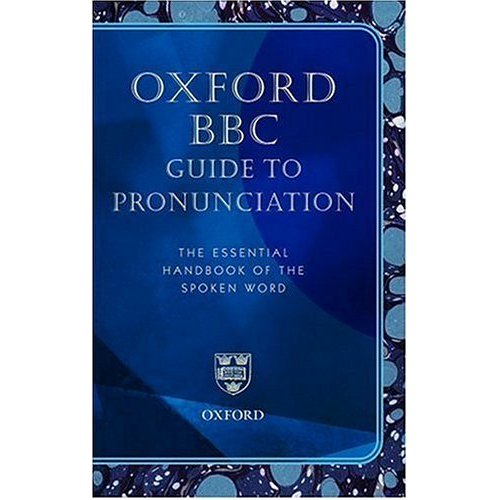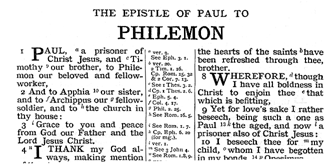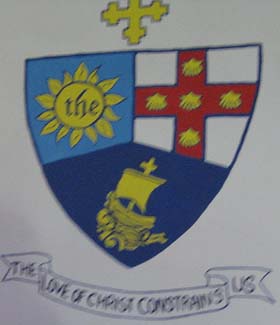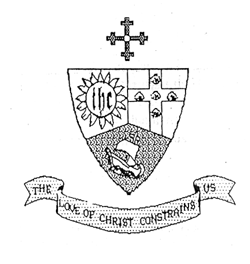DEPARTMENT OF SPEECH, HEARING & PHONETIC SCIENCES UCL Division of Psychology & Language Sciences |
 |
John Wells’s phonetic blog — archive 1-14 February 2007email: To see the phonetic symbols in the text, please ensure that you have installed a Unicode font that includes all the IPA symbols, for example Charis SIL (free download).
Browsers: Some versions of Internet Explorer have bugs that prevent the proper display of certain phonetic symbols. I recommend Firefox (free) or, if you prefer, Opera (also free).
|
|
| Wednesday 14 February 2007 | PhonlineLast summer Michael Ashby and other colleagues at UCL Phonetics and Linguistics launched a pilot on-line course in phonetics. It was called Phonline, and you can now read the project report about it. The first two objectives were
This was pioneering stuff, and I think we can say it was a great success. “While there have been many previous demonstrations of individual online learning tools for phonetics, PHONLINE aimed to reproduce all the essential elements of an extended on-campus course, with tutorial material, exercises, practical training and assessment embedded in a virtual learning environment (VLE).” The students communicated with the tutors and with each other by email and chatroom, and one of the main tasks was to set everyone up to use Unicode phonetic fonts in these environments. Students had to learn how to play, record, download and upload sound files, too: everything to make possible practical training and exercises. Nearly 150 people applied to take the course, but only 25 could be admitted. The report concludes by saying “We are currently extending some of the techniques developed for PHONLINE into on-campus courses, and developing online support for our annual Summer Course in English Phonetics. The next admissions to a full version of the PHONLINE course are likely to be in April 2007”. If you would like to be kept informed of future PHONLINE courses, send an email to: phonline |
| ||||||||||||||||||||||||||||||||||||||||||||||||||||||||||||
| Tuesday 13 February 2007 | PlethoraHow do you pronounce plethora? (Some readers may not know this word. The OED defines it as first having a medical meaning — a morbid condition — and then a figurative one, ‘over-fullness in any respect, superabundance; any unhealthy repletion or excess’. The Longman Dict. of Contemporary English, more in tune with current usage, defines it as ‘a very large number of something, usually more than you need: a plethora of suggestions’.) I pronounce it /ˈpleθərə/. That’s also what’s recommended by every dictionary I have to hand, and what I usually hear. The other day, however, I heard someone say /plɪˈθɔːrə/, and indeed LPD and some other dictionaries do give this as an alternative. Ha!, I thought to myself, this must be another of those words like omega (blog, 5 Feb.), a Greek/Latin word with a short penultimate vowel followed by a single consonant: the Latin stress rule therefore gives us antepenultimate stress. People ignorant of the quantity of the o vowel mistakenly supose it to be long, and consequently accent it. But I was wrong. It turns out that our modern word comes from a medieval Latin plēthōra, from a Greek word πληθώρη plēthōrē. The o in the penultimate syllable was definitely long. The OED reports that the 1731 edition of Nathan Bailey’s Dictionary had ‘the etymological pronunciation’ pleˈthōra, but that the 1742 and 1755 editions of the same book have ˈplethora. And that’s what most of us say today, despite the etymology. | |||||||||||||||||||||||||||||||||||||||||||||||||||||||||||||
| Monday 12 February 2007 | Updated fontsSIL has announced new versions of the Charis SIL and Doulos SIL fonts. I recommend everyone who reads this blog to install these fonts if you haven’t already done so. They are indispensible for everyone who has to deal with displaying and printing phonetic symbols. And they’re free.
The new versions of the fonts have been updated to include Latin and Cyrillic characters which were added to Unicode 5.0. There are various minor improvements to the appearance of certain letters and better handling of complex diacritics. There is now provision for nine pitch levels and for drawing interlinear pitch representations. One useful improvement is that underlining has been made thicker and lower (in the previous version it was hardly visible). There’s an extensive Private Use Area of characters not (yet) officially recognized by Unicode. If you’ve always wanted an x-height glottal stop symbol, now you’ve got one. I don’t know why it is that some people are so resistant to downloading and installing specialized fonts. I had a long email from one correspondent complaining that he couldn’t read the phonetic characters in one of the articles on my website: could I let him have a pdf or a hard copy version? It turned out that he hadn’t installed any Unicode phonetic font: once I persuaded him that that was what he needed to do, he replied delightedly that now he could see and print out everything. | |||||||||||||||||||||||||||||||||||||||||||||||||||||||||||||
| Friday 9 February 2007 | Comments on the OBGPHere are some more comments on the Oxford BBC Guide to Pronunciation. It is a book full of interest, but not without its idiosyncrasies and shortcomings. (As in my earlier comments, I have converted its transcription and respelling into the system I customarily use.) It has two authors, Lena Olausson and Catherine Sangster, both of whom are qualified phoneticians working for the BBC Pronunciation Unit. It is not clear which of them is responsible for what. Sometimes I have the impression that they didn’t consult together enough, and didn’t read one another’s work. How else are we to account for the fact that the entry for Tamil says that the stressed vowel is /æ/, but the entry for Tamil Nadu says it is /ʌ/? That the Latin preposition sine (‘without’) has /iː/ in sine die, but /ɪ/ in sine qua non? (OK, in LPD I give the old lawyers’ pronunciation with /aɪ/ for the first, but the BBC must have been talking to different lawyers than the ones that I know.) One of the authors inclines strongly to /ə/ in weak syllables, even going so far as to represent the last syllable of verbiage as /-ədʒ/; but the other prefers /ɪ/, going for a very conservative /-ɪti/ in solemnity, where most people nowadays surely have /-əti/. There is a problem with foreign words. Sometimes the Guide is anxious to insist on an accurate rendition of the foreign-language pronunciation, even when that does violence to English phonetics. Thus matryoshka is given as /ˌmətriˈɒʃkə/, with the correct Russian weakening of the first syllable (though with an unRussian secondary stress on it); but in English we have the so-called Teutonic rule which disallows weakening of both the first two syllables of a word, so that the only phonotactically realistic possibility in English is actually /ˌmætriˈɒʃkə/. For Stalag, the pronunciation /ˈʃtælæg/ falls between two stools: a proper anglicization would have /ˈst-/, as anyone old enough to remember the second world war would know; whereas a proper German pronunciation would have /-k/, since German words cannot end in a voiced obstruent. Some entries are just wrong. Taranto ought to have the stress not on the -ran- but on the Ta-, at least in Italian. (It’s like initial-stressed fegato, the Italian for liver, which so often trips up the unwary in Italian restaurants.) |
| ||||||||||||||||||||||||||||||||||||||||||||||||||||||||||||
| Thursday 8 February 2007 | More txtin?Several correspondents have taken me up on text speak (yesterday’s blog). But I think we have to distinguish between the txt speak I was referring to and two other kinds of abbreviated spelling. One is the kind of stuff you get in forum postings and chatrooms on the web; the other is informal abbreviations in general. The first would include such hoary examples (mentioned by Michael Covarrubias) as
There’s admittedly some overlap here with phone txting, e.g. gr8 for great, and bf, b/f, boyf for boyfriend. The other would be the kind of thing we probably all use when we take notes. Examples include
For the twentieth century people write either 20c or (in handwriting) 20 with a big C round it. I sometimes write phonx or φx for phonetics and phony or φy for phonology, as well as liŋ for linguistic(s) and γ for grammar. But those are just private abbreviations. Masaki Taniguchi tells me he writes S for student, Ss for students. | |||||||||||||||||||||||||||||||||||||||||||||||||||||||||||||
| Wednesday 7 February 2007 | Txt maniaI don’t normally read the Daily Star, the most down-market of the UK daily papers. But the other day I picked up a discarded copy in a tube train. I don’t receive many SMS text messages on my mobile phone, either, not being a young person; and in particular I don’t receive messages composed in the informal do-it-yourself spelling that many people nowadays use for their txt msgs. The Star has a readers’ forum entirely given over to text messages. Naturally I couldn’t resist using it as linguistic data. I must warn you that there is no guarantee of its authenticity: it could all have been invented by Star journalists. But I don’t think so. Many of the informal spellings are by now conventional, being very widely used among txtrz. Here are some, with examples from my little corpus.
(To put this in context, Google shows over a million hits for sum1. Here’s one of them.) Other spellings are straightforward simplifications of the type we are familiar with in lite (light), thru (through) etc. Some just bring the spelling into line with the pronunciation, e.g. az for as.
Some are shortenings. Thus prob can represent either problem or probably. Please becomes pleez or pls, thanks becomes tx. Others reflect popular pronunciations, social or regional.
People from non-h-dropping regions, such as Scotland and Ireland, would probably not feel comfortable writing av for main-verb have, 8s for hates, or (another case from the corpus) TRUTH URTZ. For Londoners, wiv for with makes sense; but not for northerners or Scots. But some are just arbitrary changes, which may even conflict with pronunciation. Striking among these is the writing of z rather than standard s for the plural (etc.) inflection, even after a voiceless consonant: shopz, urtz (above). Does all this go on in other English-speaking countries, too? |
| ||||||||||||||||||||||||||||||||||||||||||||||||||||||||||||
| Tuesday 6 February 2007 | The spelling worWe have a number of words spelt worC, where C is a consonant letter. Some of them are of quite high frequency. In almost all, the vowel is /ɜː/ rather than the vowel that usually corresponds to or, namely /ɔː/.
We find /ɔː/ in the verb forms wore, worn, swore, sworn. The noun sword /sɔːd/ is clearly orthographically irregular, as is Worcester /ˈwʊstə/. These are exceptions to the general rule above. Overall, you’d think that the equivalence worC = /wɜːC/ was pretty strong, and that speakers would apply it to new words of unknown pronunciation. Strangely, though, that does not happen. In Wimbledon where I live there is a road called Worple Road. I seem to remember that the late Dennis Fry, who lived in Wimbledon, called it /ˈwɜːpl̩/ Road. But then he was a phonetician. Everyone else calls it /ˈwɔːpl̩/. And now there is the newly popular herbal remedy St John’s wort. I have known this plant since boyhood, when my mother taught me the names of the wildflowers around us. She called it /sn̩ ˈdʒɒnz wɜːt/, as I do in turn. But the herbal remedy enthusiasts all seem to call it /seɪnt ˌdʒɒnz ˈwɔːt/. I wonder if they would do the same for the many other compounds of -wort that I remember from my childhood, all pronounced /-wɜːt/: glasswort, woundwort, sneezewort, ragwort, mugwort, bladderwort, liverwort and so on. They’ve probably never heard of them. |
| ||||||||||||||||||||||||||||||||||||||||||||||||||||||||||||
| Monday 5 February 2007 | Omega“This food contains valuable omega-3 fatty acids,” says the nutrition expert on The Food Programme on BBC R4. But he pronounces it /əʊˈmiːgə/. I’ve got this pronunciation of omega in LPD as an AmE variant, along with /-ˈmeɪgə/ and /-ˈmegə/. But at the time I drafted the first edition of LPD I clearly assumed that the only British stressing was /ˈəʊmɪgə/ (or /ˈəʊməgə/). Not any more! |
| ||||||||||||||||||||||||||||||||||||||||||||||||||||||||||||
|
The traditional BrE pronunciation of the name of the last letter in the Greek alphabet is indeed /ˈəʊmɪgə/. Studying classical Greek from the age of 12 on until I got my BA in Classics at age 21 I do not think I ever heard any other way of pronouncing it. Yet given that the classical Greek name was just ὦ (ō), this could be seen as a little surprising. Why don’t we simply call the Greek letter /əʊ/? The name omega dates from the Byzantine period. By then the distinction between classical short ŏ and long ō had been lost, and the two letters ο (ŏ) and ω (ō) had to be distinguished by special names: ‘small o’ o micron and ‘big o’ o mega. Modern Welsh does the same thing with the letters i and u. In southern Welsh they sound identical, so when I was learning Welsh I was taught to call the first one i dot and the second u bedol (i horseshoe). So the medieval name of the Greek letter was ὦ μέγα. That still doesn’t explain why we traditionally stress it on the first syllable. Indeed, given that the element mega is in implicit contrast with micron, you might think that the -meg- would bear fossilized contrastive stress. As usual, the explanation is in Latin. Most Greek words in English have passed to us via Latin, and on the way have become subject to the Latin stress rule (blog, 20 Jan.). The Latin rule says look at the penultimate syllable: if it is light (= short vowel, not more than one following consonant), then stress the antepenultimate. In the mega element the e is indeed short (cf. megabyte, mega store, megalomaniac) and it is followed by the single consonant g. So stress goes onto the preceding syllable. The e itself undergoes vowel reduction. Hey presto: /ˈəʊmɪgə/. But this historical coherence is now being superseded by arbitrary think-it-up-yourself spelling pronunciations. |
| |||||||||||||||||||||||||||||||||||||||||||||||||||||||||||||
| Friday 2 February 2007 | PhilemonDespite my father’s occupation, and despite what you might infer from the fact that recent topics in my blog have included hymnody and church decoration, I would not call myself a religious believer. But I do consider that some familiarity with Christian doctrine and tradition is part of our cultural background in England and other English-speaking countries. You can’t appreciate English literature over the centuries without that kind of familiarity. Ordinary English discourse is full of quotations from the Bible (even though people who utter them may not realize this). Where English Language and Culture is concerned, the Authorized Version (or the King James Bible, as the Americans call it) is right up there with Shakespeare. That’s why, as I browsed through the Oxford BBC Guide to Pronunciation, I did a double-take when I came to the entry on Philemon. The OBGP has the helpful habit of identifying entries by a brief gloss — not a full definition, more a reminder of the meaning. egregious outstandingly bad uhg-ree-juhss /əˈɡriːdʒəs/ Ehle, Jennifer British actress ee-li /ˈiːli/ Ehrlich, Paul German medical scientist powl air-likh /ˌpaʊl ˈɛː(r)lɪç/ So how do you think the headword Philemon is identified? What Philemon have you heard of? (Put aside the interesting but irrelevant question of whether the first syllable is /fɪ/ or /faɪ/.) As Wikipedia’s disambiguation page shows us, people bearing this name include a poet, a patriarch, and a mythological character; it is the name of a play and of a musical, and even (Philémon) of a French comic book character. Philemon was also the name of Carl Jung’s ‘wise spirit guide’. But I bet that for most people the only Philemon they have ever heard of is the one after whom a book of the New Testament is named: the epistle of St Paul to Philemon. (It was particularly important in the debate over the abolition of slavery, because its topic is the need for Philemon to be reconciled to Onesimus, who had apparently been his slave. Was Paul condoning slavery?) Which is why I thought it odd that the OBGP entry reads as follows. Or is it really true that people know more about Greek mythology than about the Christian scriptures? |
| ||||||||||||||||||||||||||||||||||||||||||||||||||||||||||||
| Thursday 1 February 2007 | the ihsHave a look at this badge (I’m sorry that my photo is slightly out of focus). It was on the wall of a Methodist church in Montserrat. In the upper left third of the shield you see a yellow sun on a blue ground. Across the sun is written the word “the”. As I sat there listening to the sermon (sermons are much longer in Montserrat than we’re accustomed to in England), I asked myself what that word was doing there? Was it an acronym for something, and if so for what? If not, what was special about the definite article? A terrible suspicion formed in my mind: was it simply an artist’s mistake? After the service I asked one of the church officials about it. He said he was not sure, but he would find out. A few days later, he confirmed my suspicion. It was indeed a mistake. The artist had misread the letters ihc of the original artwork he was copying. The printed explanation of the badge reads “The SUN [...] enclosing the three letters of the Greek IHS for Jesus. Jesus is the Sun of Righteousness (Malachi 4:2).” But why is there an H in the Greek name of Jesus? In Greek his name is written Ἰησοῦς Iēsous, or in capitals and without diacritics either ΙΗΣΟΥΣ or ΙΗϹΟΥϹ (the form of the Greek sigma could vary). |
| ||||||||||||||||||||||||||||||||||||||||||||||||||||||||||||
|
The early Christians abbreviated this by dropping the last three letters. In western Christianity, Roman-oriented, ΙΗΣ was reinterpreted as the Latin letters IHS (or alternatively ΙΗϹ as IHC). Since Latin letters all have lower-case as well as upper-case forms, the abbreviation was also written ihs (or ihc). It was used as a monogram and often incorporated into the design of crosses, altar cloths and the like. Sometimes it was written with a line across the top to show that it was an abbreviation. In Latin the monogram was sometimes taken to be the initials of Iesus Hominum Salvator (Jesus Saviour of Men). In English it has sometimes been reinterpreted as the initials of In His Service. What’s all this got to do with phonetics? Not much, except that the Latin letter H (or h), usually standing for [h] or nothing, just happens to look like the Greek letter Η (or η), which classically stood for [ɛː] and in Modern Greek stands for [i]. They look alike and occupy the same place in alphabetical order, but have quite different values. Lastly I show you a black-and-white reproduction of the original from which, I am told, the church decorator in Montserrat worked. You can sympathize with his misreading the letters ihc and turning them into a word he recognized. |
|
Current blog
Archived from previous months:
- December 2006 - January 2007
- 16-30 November 2006
- 1-15 November 2006
- 16-31 October 2006
- 1-15 October 2006
- September 2006
- August 2006
- July 2006
- June 2006
- May 2006
- April 2006
- March 2006
my home page















